Enemies share eternity together
Updated: 2014-04-14 08:20
By Dong Fangyu (China Daily)
|
||||||||
|
The New Fourth Army In October 1937, the Communist Party of China reached an agreement with the Kuomintang whereby Red Army soldiers and communist guerrillas active in the eight provinces of southern China would join the expanded New Fourth Army of National Revolutionary Army, a unit that symbolized the united CPC-KMT resistance to the Japanese. Two veteran communists led the unit: Ye Ting as commander and Xiang Ying as his deputy. Under their leadership, the New Fourth Army developed into one of the most effective opponents of the Japanese troops. In March 1938, the army opened up anti-Japanese bases in Jiangsu and the surrounding provinces, engaging in guerrilla warfare to the north and south of the Yangtze River. Later, the unit became a leading force in the fight against Japanese strongholds in central China. - Dong Fangyu |
"What can I contribute as an ordinary Chinese? I try to encourage everyone around me not to buy Japanese products. You think that's senseless? No, it's the most rational way of showing my anger at Japan's distortion of history," he said. "Most of the time, Chinese people just blame Japan on online forums, but they don't put their words into action."
Sun Xiaohua, the daughter of Sun Cunyu, who commanded a company at the battle, said, "As a family member, I'm very unhappy to see my father buried in the same cemetery as his enemies."
"But at the same time, I see the way the locals dealt with the problem as a humanitarian gesture," said the 60-year-old retired accountant.
Although Sun's father survived the battle, the injuries he sustained troubled him for the rest of his life. As he lay dying in Beijing in 1985, the old soldier made a final request and asked to be buried alongside his comrades in Zhujiagang. His grave stands apart from those of the fallen.
"I have no comment about the potential resurgence of imperialism in Japan. It's so impudent as to defy reason. It's beyond words. I hope the descendants of the Japanese soldiers and younger Japanese people will come to Zhujiagang, to see the grave of their ancestors in person," Sun said.
"I'm sure they would feel a sense of shame if they stood in front of the grave, on the land ravaged by their forefathers."
Xu Changliang, Yu Lihui and Liu Wenlong contributed to this story.
Contact the author at dongfangyu@chinadaily.com.cn

 DPRK opens race to foreigners
DPRK opens race to foreigners
 Death toll from Chile forest fire rises to 16
Death toll from Chile forest fire rises to 16
 Duchess receives Maori welcome
Duchess receives Maori welcome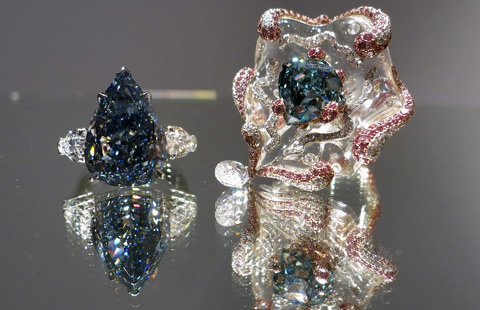
 Christie's to auction dazzling diamonds
Christie's to auction dazzling diamonds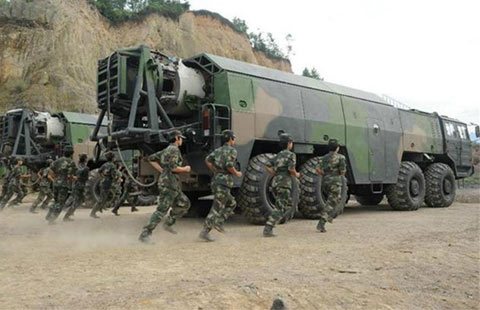
 Women's missile unit joins China's army
Women's missile unit joins China's army
 Coldest marathon: a song of ice and fire
Coldest marathon: a song of ice and fire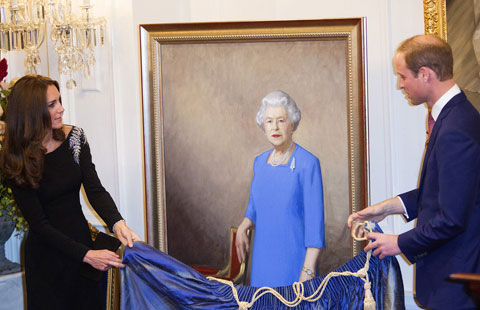
 Prince William, Kate unveil portrait of Queen Elizabeth
Prince William, Kate unveil portrait of Queen Elizabeth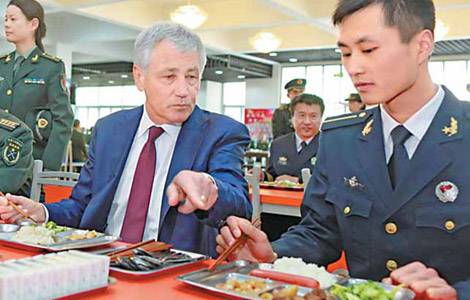
 Hagel gets recipe of goodwill
Hagel gets recipe of goodwill
Most Viewed
Editor's Picks

|

|

|

|

|
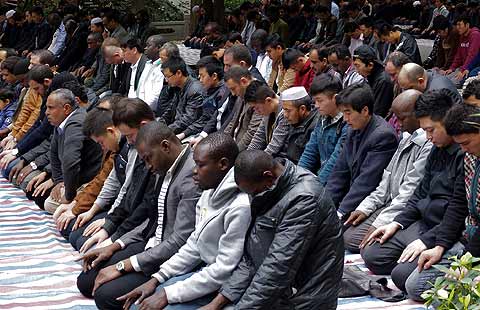
|
Today's Top News
Experts discuss about custody of black box
Foreign investment law to be revised
China protests Shindo's shrine visit
China's financial reforms 'not tough one'
Boao Forum focuses on 'growth drivers' for Asia
Texas firm offers costly air purifier
NBA to play games in China
'Shared responsibility' emphasized
US Weekly

|

|







